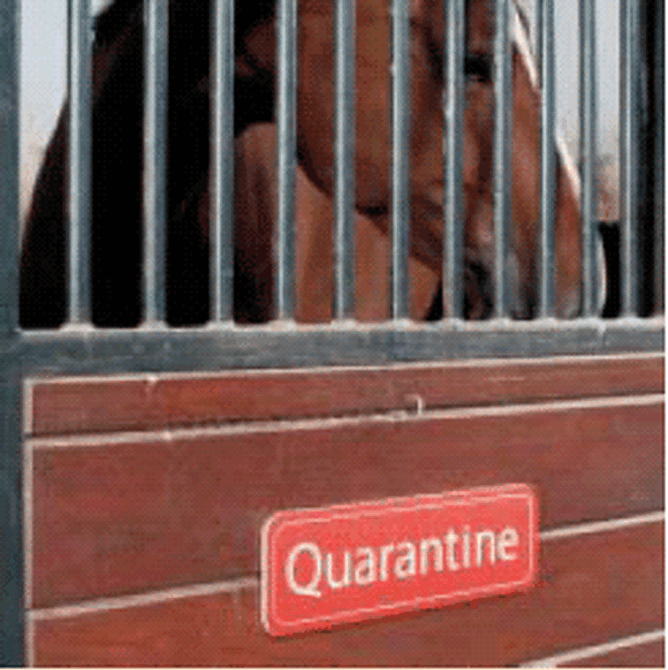With yearling sales, summer racing and the New Zealand Horse of the Year looming the New Zealand Equine Health Association (NZEHA Inc) encourages each of its member bodies to adopt codes as a way to handle equine disease outbreaks. Because management of diseases already in New Zealand is deemed to be an industry responsibility the only means of implementing controls on equine disease outbreaks is for Equine industry member organisations to endorse and enforce codes for the control of equine contagious diseases.
New Zealand is relatively free of many of the world's worse infectious diseases but do face ongoing outbreaks of disease which can be contained if those in charge of horses followed good containment measures. In the case the two most common problems facing horses, Strangles and Equine Herpes Virus, NZEHA would recommend horse owners always isolate new horses coming onto their property for at least 10 days.
Owners of horses with coughs, colds and nervous symptoms should:
Isolate the horse and any horses that have had nose-to-nose contact with the suspect horse away from other horses on the property.
If possible create three groups:
- Infected horses
- Horses that have had close contact with the infected horses
- Clean horses
Call your veterinary surgeon to make a diagnosis. This will generally require sampling and the submission of the samples for laboratory testing.
Discuss with your veterinary surgeon isolation and handling procedures, and implement these as quickly as possible. Immediate introduction of strict hygiene between the groups will reduce the risk of spread and the time taken to control the outbreak.
Separate the groups by at least 35 metres.
As few people as possible should handle affected horses with application of strict hygiene standards.
If possible separate staff for the separate groups.
Attend unaffected horses first if separate people are not available.
Protective clothing, ideally disposable, should be available.
Ensure separate water troughs, grooming, cleaning and feeding equipment.
Careful disposal of bedding, uneaten food and water and in the case of abortions foetuses and foetal membranes.
Do not allow any horses onto or off the property at this time.
Discourage visitors to the property and confine pets such as cats and dogs.
Contact the owners of the affected horses and owners of other horses on the property.
Notify any neighbouring properties with horses that you have a suspected case of Strangles/Equine Herpes Virus associated disease, (rhinopneumonitis, abortion or neurological disease) and recommend that they check their horses.
For strangles a previously infected horse can not be confirmed as free of strangles until it has had negative culture results to 3 consecutive nasopharyngeal swabs over a 2 week period or an endoscopically guided gutteral pouch lavage.
In the case of Herpes virus, infected animals should be kept for at least 4 weeks but there remains the potential for ongoing latent infection hence quarantine measures must be judiciously applied when new horses arrive on any property. Owners or persons in charge should share information of the disease status of their property and horses coming in or leaving their care to enable appropriate and timely disease control measures.


